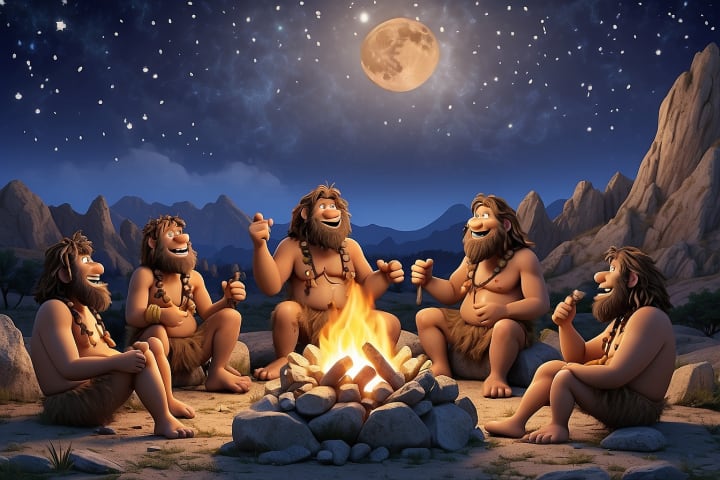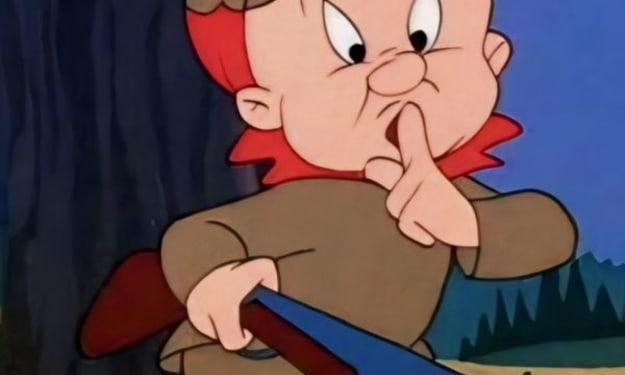The Evolution of Humor: From Cavemen to Memes
The Humorous Journey: Tracing the Evolution of Comedy from Prehistoric Chuckles to Digital Memes

Humor is a universal aspect of human culture, evolving over centuries to reflect changing social norms, values, and communication technologies. From the simple gestures of cavemen to the complex memes of the digital age, humor has played a crucial role in human society. This article explores the evolution of humor, tracing its development from its earliest forms to its modern manifestations.
The Early Origins of Humor
Humor is as old as humanity itself, with evidence of comedic behavior dating back to the time of our early ancestors. Cavemen likely engaged in simple forms of humor, using gestures, facial expressions, and vocalizations to communicate amusement and provoke laughter. These early forms of humor were likely tied to survival instincts, helping to build social bonds and alleviate tension within the group.
As human societies evolved, so too did the nature of humor. In ancient civilizations such as Egypt, Greece, and Rome, humor played a central role in daily life. The ancient Greeks, in particular, valued humor as a means of social commentary and political satire, as seen in the plays of Aristophanes.
The Middle Ages and Renaissance
During the Middle Ages, humor took on a more religious tone, with humorists often using satire to critique the church and the ruling elite. The Renaissance saw a revival of interest in the comedic arts, with playwrights such as William Shakespeare incorporating humor into their works to entertain and enlighten audiences.
The rise of the printing press in the 15th century led to the mass production of humorous texts, making humor more accessible to the general population. This period also saw the emergence of the first comedic publications, such as jest books and satirical newspapers.
The Modern Era
The 19th and 20th centuries saw the rise of modern comedy, with the invention of new forms of humor such as stand-up comedy, slapstick, and satire. The invention of film and television further popularized comedy, with comedians such as Charlie Chaplin, Buster Keaton, and Lucille Ball becoming household names.
In the digital age, humor has taken on new forms, with the rise of internet memes and viral videos. Memes, in particular, have become a popular form of humor, with people sharing and remixing images and videos to create new comedic content.
The Influence of Culture on Humor
One of the fascinating aspects of humor is how it varies across cultures. What may be funny in one culture may not necessarily be funny in another. This cultural variation in humor can be attributed to a variety of factors, including language, social norms, and historical context.
For example, puns and wordplay are often considered humorous in English-speaking cultures, where they are used to create clever jokes and witty remarks. However, in other cultures where puns are less common or have different linguistic structures, they may not elicit the same response.
Similarly, what is considered taboo or off-limits in one culture may be fair game for humor in another. For example, death and illness are often considered taboo subjects in many Western cultures, yet they are often the subject of dark humor in other cultures.

The Role of Technology in Shaping Humor
The evolution of technology has also had a profound impact on the evolution of humor. The invention of the printing press, for example, allowed for the mass dissemination of humorous texts, leading to the rise of the comedic publication industry.
The invention of film and television further revolutionized comedy, bringing humor into the living rooms of millions of people around the world. The advent of the internet and social media has taken this a step further, allowing for the rapid creation and dissemination of humorous content on a global scale.
One of the most notable developments in recent years has been the rise of internet memes. Memes are images, videos, or pieces of text that are often humorous in nature and are rapidly shared and remixed online. Memes have become a dominant form of online humor, with new memes emerging daily and spreading rapidly through social media platforms.
The Future of Humor
As we look to the future, it is clear that humor will continue to evolve alongside advances in technology and changes in society. Virtual reality, artificial intelligence, and other emerging technologies may open up new possibilities for humor, allowing for immersive and interactive comedic experiences.
Additionally, as society becomes increasingly globalized, we can expect to see a greater diversity of humor as different cultures influence and interact with each other. Ultimately, while the forms of humor may change, its underlying purpose – to entertain, enlighten, and bring people together – will remain constant.
Conclusion
From its humble origins in the gestures of cavemen to the complex memes of the digital age, humor has evolved alongside human culture. While the forms of humor may change, its basic function remains the same: to entertain, enlighten, and bring people together. As we continue to evolve as a species, so too will our sense of humor, reflecting the ever-changing nature of human society.
Dear Readers 💙
If you enjoyed exploring the evolution of humor with us, give us a round of applause! Don't forget to follow our talented author for more insightful content and subscribe to our newsletter for the latest updates delivered straight to your inbox.
About the Creator
BLESSING COOL
Digital Network Marketer || Crypto Enthusiat || Social Media Influncer || Skilled Serial Entrepreneur || Investor || Motivational Speaker || News Reporter.






Comments
There are no comments for this story
Be the first to respond and start the conversation.